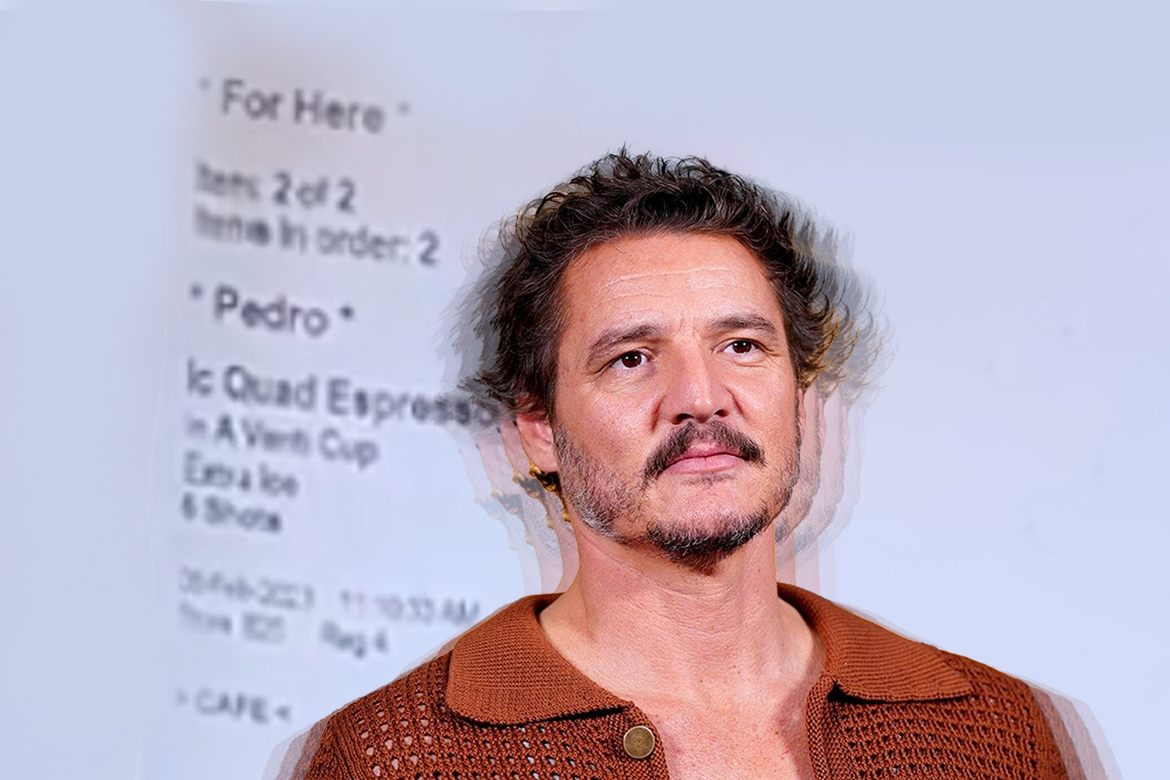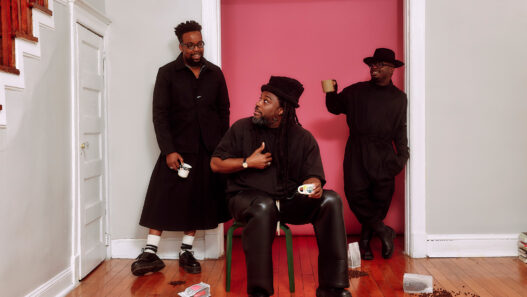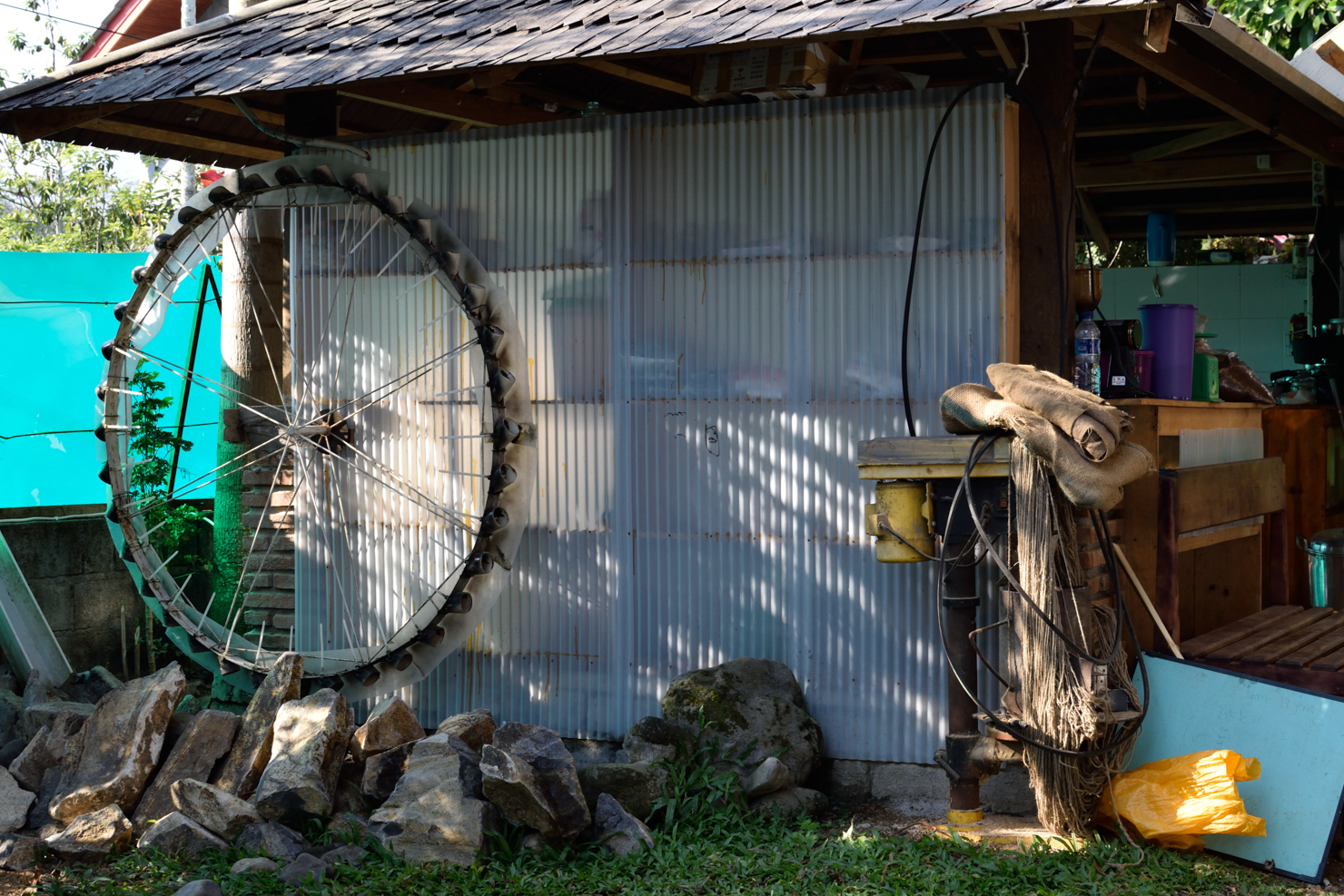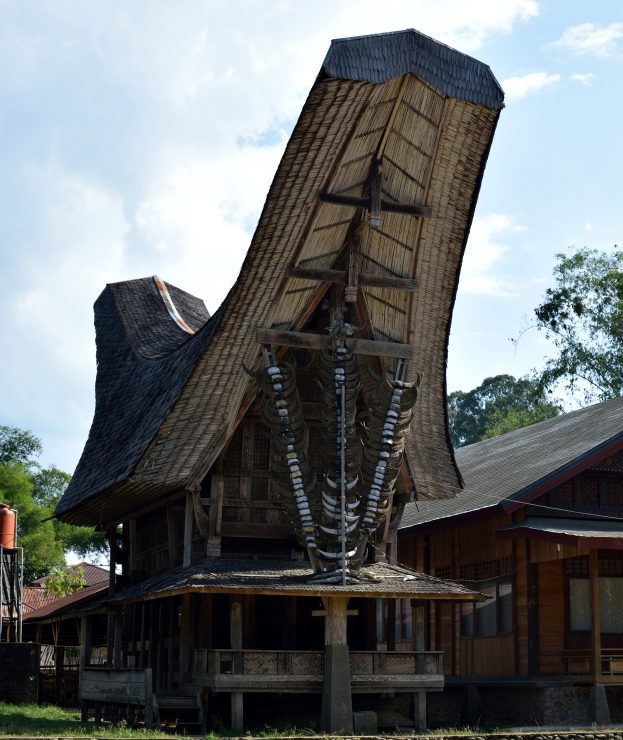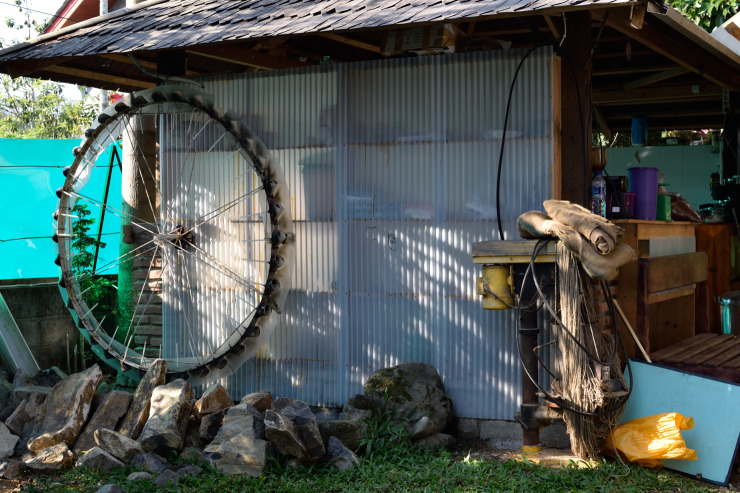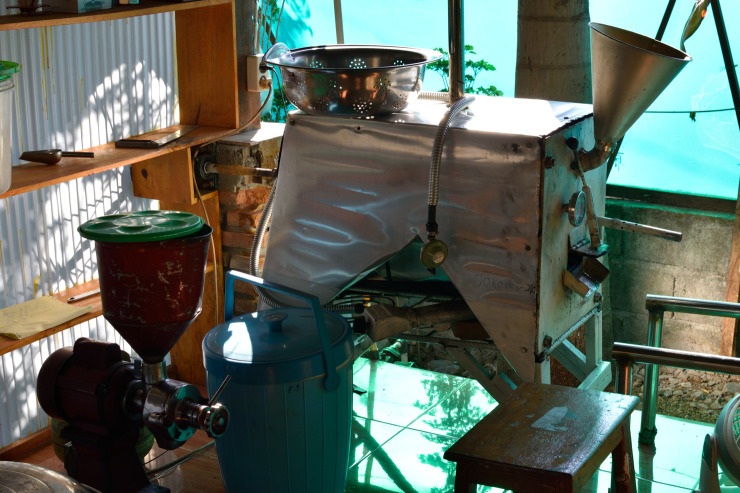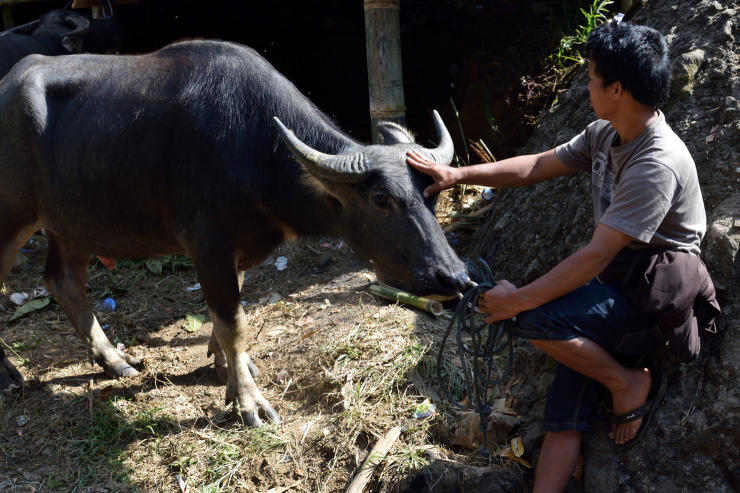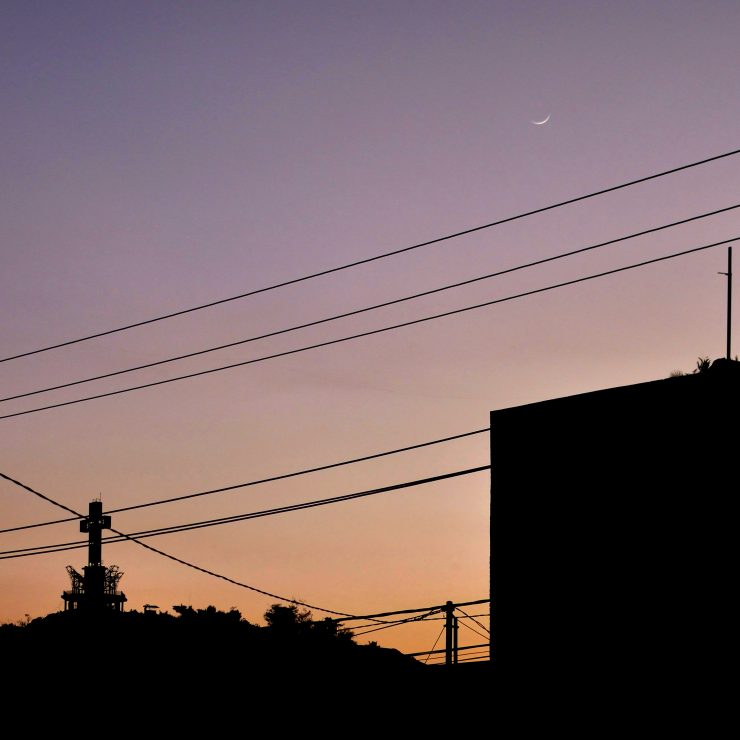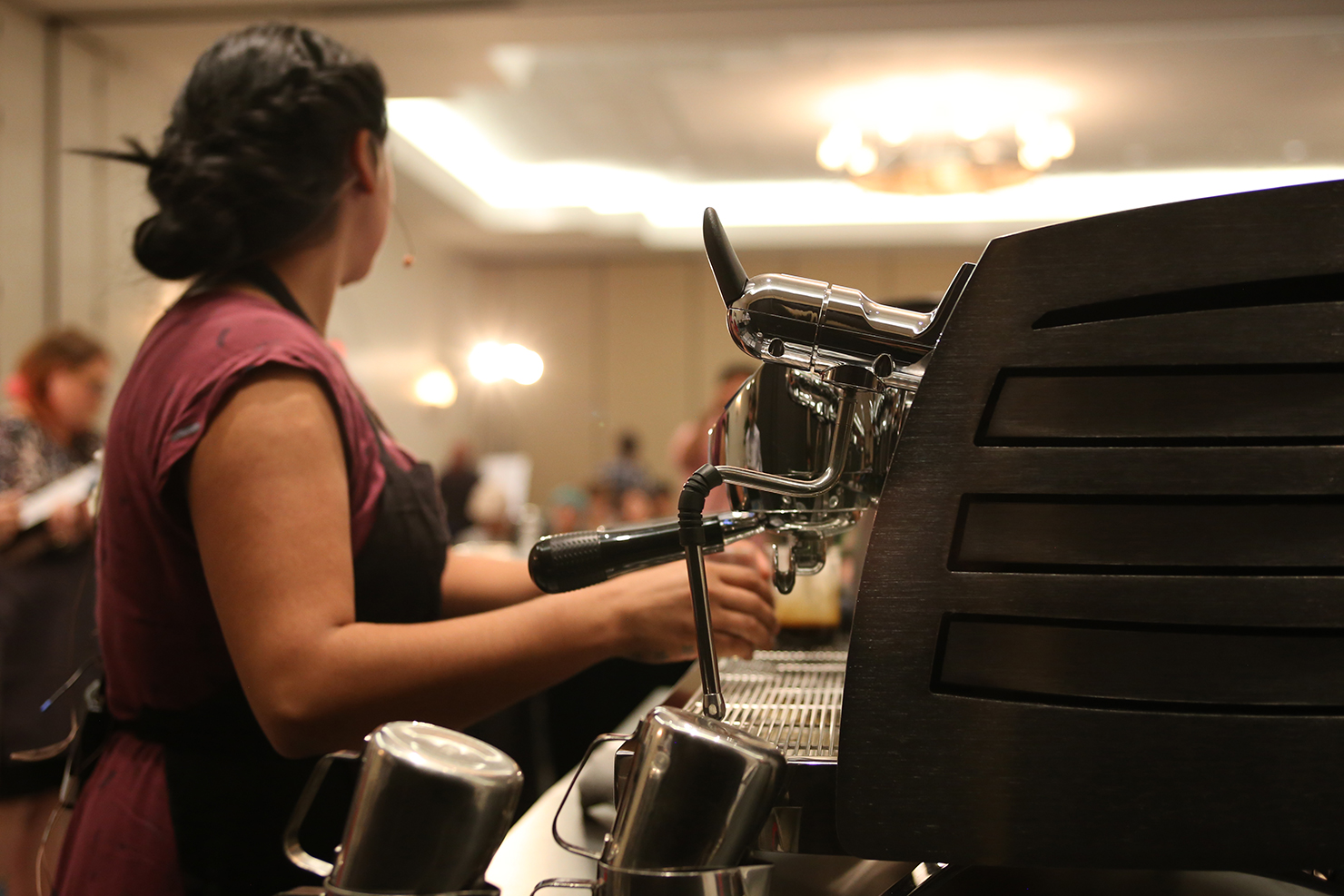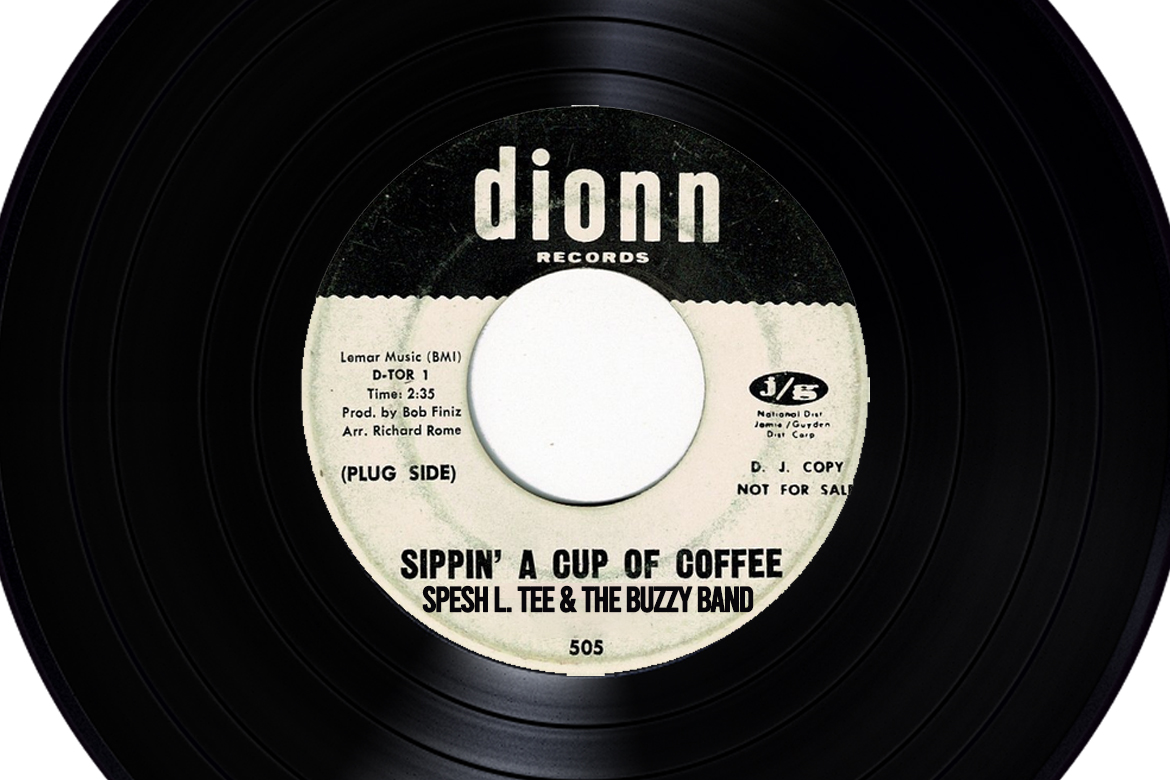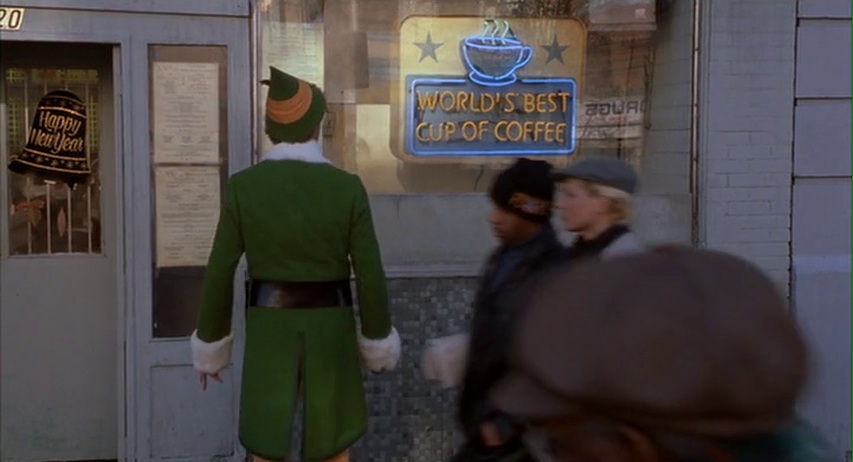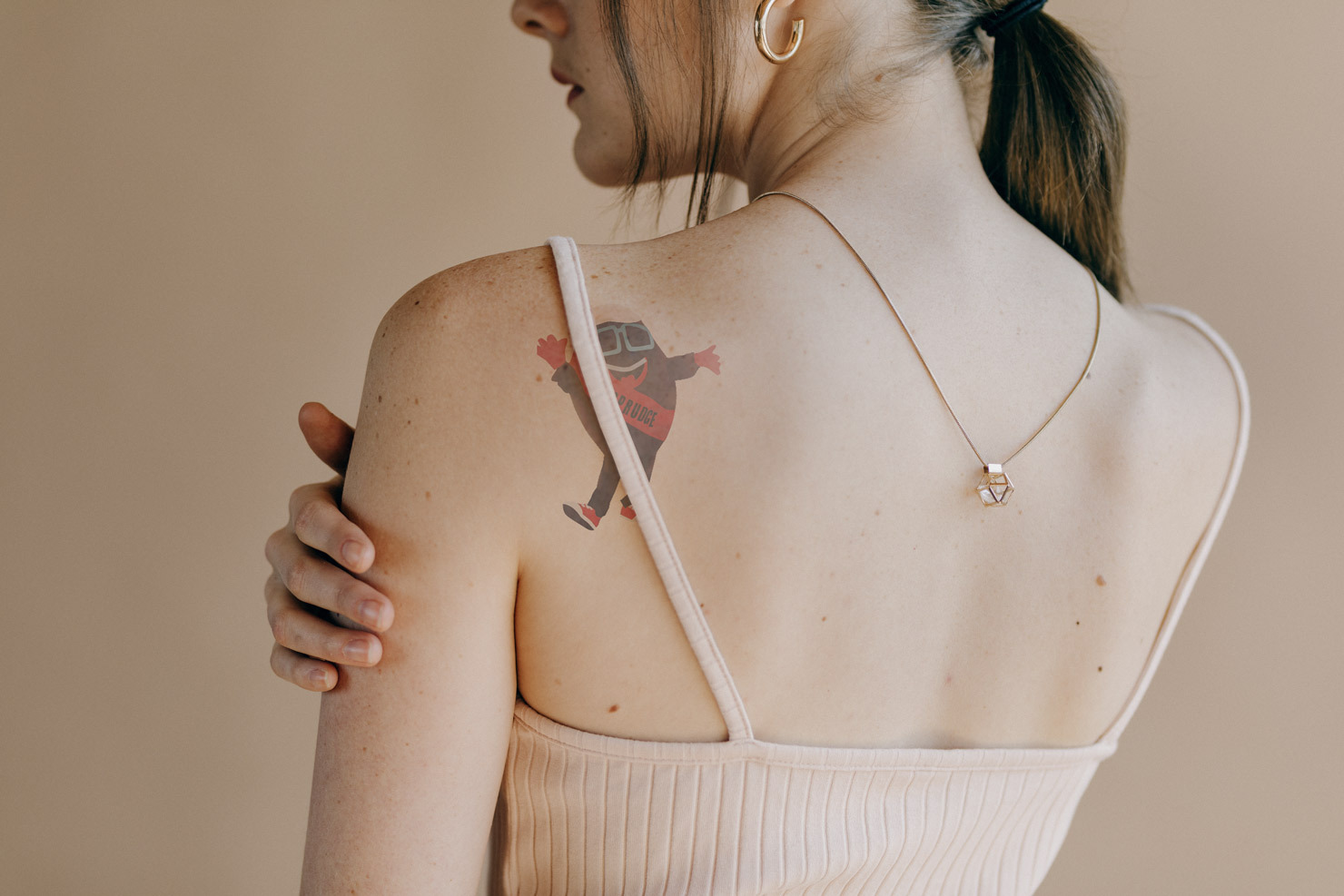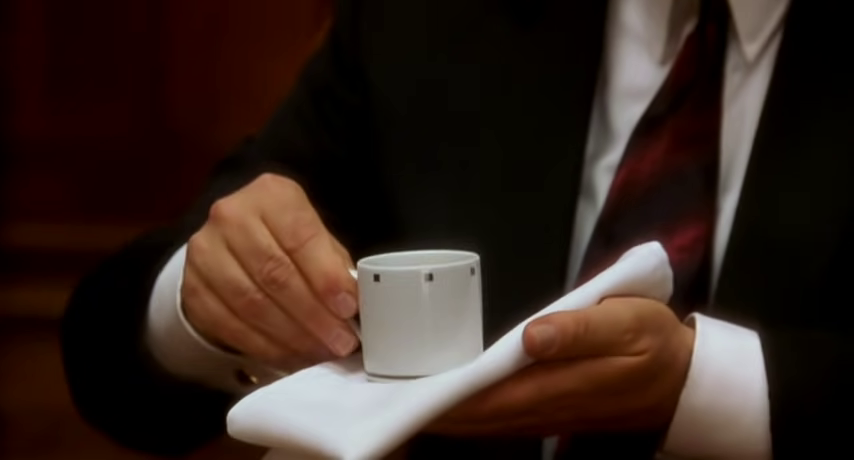At six in the morning I step blearily from the confines of the arctic bus cabin, molecular motion returning to my extremities as I begin a random walk past hordes of porters with my compatriot to our place of lodging. The sun begins to peek over dust, hills, and arrays of concrete in the central intersection of Rantepao, the capital of North Toraja Regency, Sulawesi. Dawn turns into day at the center of Toraja, and we begin our search for green coffee.
As we approach the hotel, something seems amiss. A camouflaged Jeep parked in front festooned with armaments looms darkly in the otherwise warm morning light. We enter and approach the concierge, who informs us that they are fully booked. Dismayed, we set out to wander the streets looking for other lodging. The only location that pops up on my map is a certain “Hotel Pison,” situated beside the Sadang river.
Walking along the dusty path, increasing numbers of agitated motorbikes buzz past. My traveling companion receives a call informing him that he in fact has a reservation at the previous hotel, and that he need only to return. Disaster averted, the Jeep again presents itself, this time as an innocuous afterthought —and Hotel Pison fades into the back of my mind as well.
A couple days of later, after an arduous day bouldering in a Toyota sedan en route to a processing station, my colleague says to me: “Hey, I know this guy. He has a roaster powered by a water wheel, you just have to meet him.” This sounds like a welcome respite after six hours’ travel in a bucket seat, and we make our way to the outskirts of Rantepao. As we pull in to his friend’s place, I see a diminutive sign proclaiming “Hotel Pison.” Full circle, I think to myself as we make our way in to meet Pak Eli.
Elifas Pongrekun is a relatively new entrant in the world of coffee. Seven years ago, he moved with his family to his wife’s village near Awan, North Toraja, where coffee is the main source of income. Awan was, and still is, difficult to access without 4-wheel-drive, and it becomes completely isolated during the rainy season when flooding and mudslides make roads inaccessible. At the time, the village only had one 1kW diesel generator, which supplied light to nine houses for three hours in the evening of each day. By the time he left, 90 houses were powered by 10kW of micro hydroelectric, installed by he and his father in law.
From this experience, Pongrekun gained inspiration for a hand-built roaster powered by waterwheel. Upon moving back to Rantepao, he made his inspiration a reality and founded Toraja Mountain Coffee. The drum of his 1-kilo roaster is directly affixed to a waterwheel, turned at about 60rpm. The roaster is encased in steel plating in order to direct the heat and exhaust upwards through a chimney. Every once in a while, Eli checks his progress with the trier. When the roast is finished, the front swings open onto a sieve, a fan positioned beneath. As his wife Eviyanti makes pot after pot of coffee, I admire the workshop behind Hotel Pison, its shelves replete with various coffee effects from visitors; here a Hario v60, there a pack of Chemex filters. Upon trying the coffee, both my comrade and I agree: this is the best coffee we’ve been served in Toraja, and served to us by the warmest people we’ve met all week.
The Pongrekuns, aside from having family connections in Awan, also have coffee connections. In much of Sulawesi, different villages have different market days. On market day in Awan, Eviyanti’s brother Siber sets up a kiosk to buy coffee from different smallholders, and transports it to Rantepao. Rantepao’s market day is, conveniently, the next day. During high season, the Rantepao market is full of coffee vendors, with Siber being one of many. This is where Pak Eli gets the coffee that lasts him until next harvest. Thus, Eli’s business is two-pronged, with both a source for coffee and a handle on roasting.
Perhaps the most ubiquitous symbol in Toraja culture is two-pronged as well—the water buffalo, or tedong. Its horns are reflected in the curved roofs of the tongkonan traditional houses, the motifs of traditional ikat weavings, and children can be heard to yell “tedong, tedong!” as they charge after each other on the streets. As I weaved through coffee vendors at Rantepao’s Bolu market, I found that most locals were more interested in the water buffalo bazaar, with some animals capturing prices of up to $40,000.
What will it take for Toraja coffee to take the bull by the horns? High local prices for parchment coffee deter some international buyers, wary of variances in quality. Farmers, who by and large process their own coffee to parchment, fail to see the incentive or the profits that come with higher quality since they sell primarily to coffee collectors. Elifas and Eviyanti, for their part, are making a name for Toraja coffee—sourcing, roasting, and serving coffee in the same 50km radius. Hotel Pison is frequented by travelers from many walks of life, and anyone who drinks coffee there is drinking Toraja Mountain Coffee. Eli and Evi have the idea of bolstering their coffee service, adding a third prong to their attack, and truly showcasing their coffee.
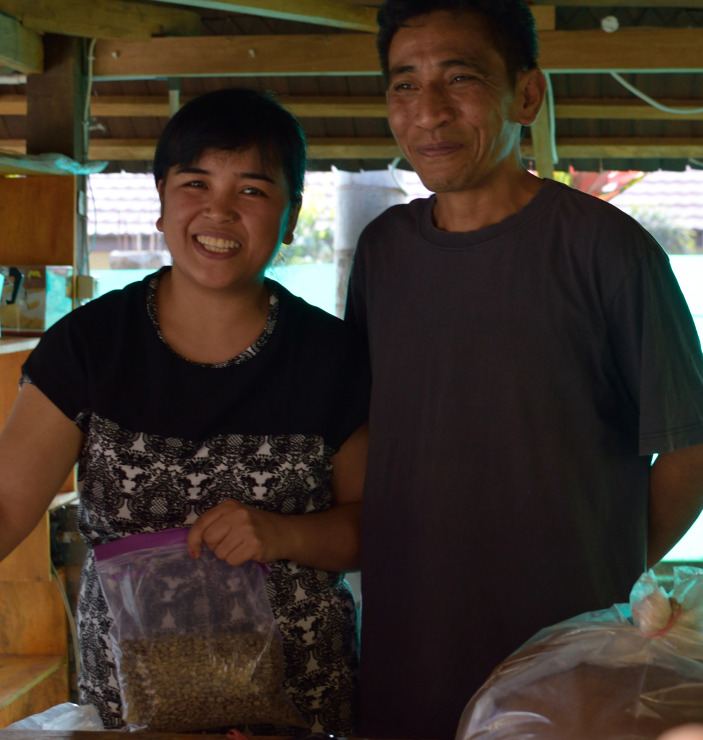
As the day moved into evening, I decided to stay at Hotel Pison. My colleague was headed to Makassar and Medan to meet yet more coffee people, and I couldn’t pry myself away from Rantepao quite yet, the dusty town growing on me like a agglomeration of tumbleweed. Pak Eli and I climbed to the top of Bukit Singki, Rantepao’s notable hill which is affixed with a cross denoting the majority faith. From the top Eli noted the different coffee producing territories, and we appreciated the surrounding mountains, the sounds of evening traffic drifting up from below. The horns of a crescent moon rose over the scenery, and I couldn’t ignore the significance.
Evan Gilman is an American coffee professional based in Indonesia. Read more Evan Gilman on Sprudge.





